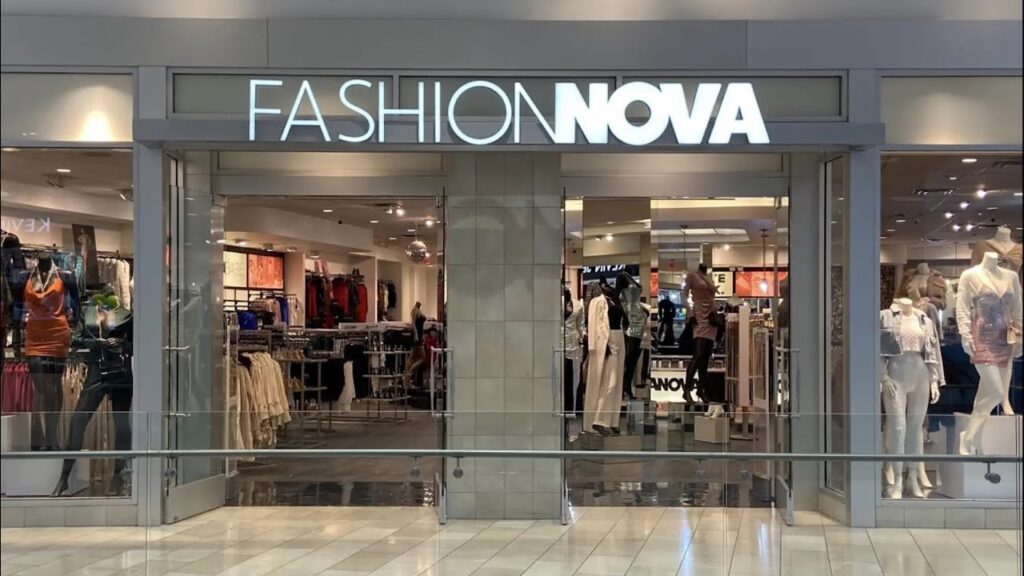Introduction – PAS Formula
Problem:
Fashion is supposed to be about creativity, confidence, and self-expression. But behind the glamour of glossy Instagram posts and celebrity endorsements, the fashion world sometimes hides a darker reality. The fast-fashion industry, led by brands like Fashion Nova, has been under scrutiny for the way it treats the workers who actually make the clothes.
Agitate:
Reports from labor investigators reveal that some workers producing garments for Fashion Nova in Los Angeles are being paid as little as $2.77 an hour. Imagine stitching trendy outfits worn by influencers and pop stars, yet not earning enough to pay rent or buy groceries. This isn’t a far-off problem happening in another country—it’s happening right here in the USA, in one of the world’s most influential fashion cities.
Solution:
In this article, we uncover the truth about Fashion Nova’s labor practices in Los Angeles. We’ll explore the conditions inside garment factories, the impact on workers’ lives, and the steps consumers can take to support ethical fashion. By the end, you’ll know exactly why transparency matters—and how your choices can influence real change.
1. How Fashion Nova Took Over Fast Fashion
The Rise of a Social Media Giant
Fashion Nova built its empire through clever marketing, influencer partnerships, and rapid trend adoption. By working with celebrities like Cardi B and Kylie Jenner, the brand transformed itself into a household name almost overnight.
Fast Fashion at Lightning Speed
Unlike traditional fashion houses that operate seasonally, Fashion Nova can turn a design from concept to store shelves in just weeks. This speed fuels constant consumer demand but also puts enormous pressure on manufacturing.
The Cost Behind the Hype
While shoppers enjoy low prices and fresh styles, the hidden cost is borne by garment workers who face grueling hours and unlivable wages. These workers are often the invisible backbone of the brand’s success.
2. Inside the Garment Factories of Los Angeles
Crowded and Unsafe Workspaces
Investigations show that many Fashion Nova suppliers in Los Angeles operate in cramped, poorly ventilated spaces. Workers often endure long shifts without proper breaks, which takes a toll on their health.
Wages Below Legal Standards
Despite California’s minimum wage laws, some factory employees report earning far less—sometimes under $3 per hour. This is possible because brands contract work through middlemen, creating a buffer that distances them from direct responsibility.
A Workforce Without Power
Many garment workers are immigrants who may not speak English fluently or know their labor rights. This makes them vulnerable to exploitation, as they fear losing their jobs if they speak out.
Bullet Points: Common Issues in LA Garment Factories
-
Pay rates far below legal minimum wage
-
Unsafe and overcrowded working conditions
-
Lack of health benefits or job security
3. The Role of Consumers in Fast Fashion
Why Transparency Matters
When shoppers demand transparency, brands are more likely to audit their supply chains and ensure fair labor practices. Consumers can push for Fashion Nova to disclose where and how their products are made.
Voting with Your Wallet
Every purchase sends a message. Supporting ethical fashion brands tells the industry that consumers value people over profits.
Educating Yourself Before Buying
Research brands before making a purchase. Tools like Good On You and Fashion Revolution’s transparency index can help shoppers make informed choices about where to spend their money.
4. The Legal and Ethical Battle
California’s Efforts to Protect Workers
California has introduced measures like the Garment Worker Protection Act to ensure fair pay and hold brands accountable. This law makes retailers directly responsible for wage theft within their supply chains.
Fashion Nova’s Public Response
While Fashion Nova has denied direct wrongdoing, the brand has faced repeated criticism from labor advocates and media outlets. They claim to investigate violations but critics argue they could do much more.
Holding Brands Accountable
Laws help, but they only work if enforced. Consumers, advocacy groups, and journalists all play a role in ensuring Fashion Nova and other fast-fashion giants follow the rules.
5. How to Support Ethical Fashion Instead
Shop Slow Fashion Brands
Slow fashion prioritizes quality, fair wages, and sustainability. These brands often charge more, but their products last longer and support better working conditions.
Buy Less, Choose Better
Reducing how much you buy is one of the most impactful ways to fight the cycle of exploitation. Focus on versatile, timeless pieces instead of trendy throwaways.
Raise Awareness
Share articles, documentaries, and resources that expose unethical labor practices. The more people know, the harder it is for brands to hide behind marketing.
Bullet Points: Ethical Fashion Actions You Can Take Today
-
Support certified fair-trade brands
-
Repair clothes instead of discarding them
-
Join social media campaigns for garment worker rights
Conclusion – A Fashion Statement That Matters
Fashion Nova may be dominating the style scene, but its success comes at a human cost. In Los Angeles, underpaid garment workers stitch together the pieces of a billion-dollar empire—often without earning enough to survive. This isn’t just a labor issue; it’s a moral one.
As consumers, we hold more power than we realize. Every time we make a purchase, we cast a vote for the kind of industry we want to support. If we demand transparency, fairness, and dignity for the people behind our clothes, we can help rewrite the story of fast fashion. So next time you’re tempted by a trendy bargain, remember: the real price tag may not be printed on the label. Choose wisely, shop consciously, and make your fashion choices count.



